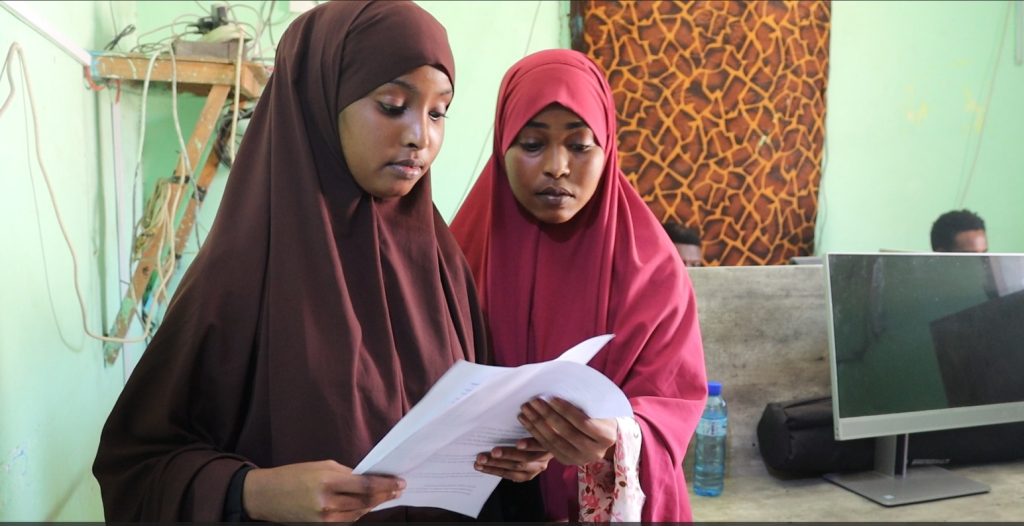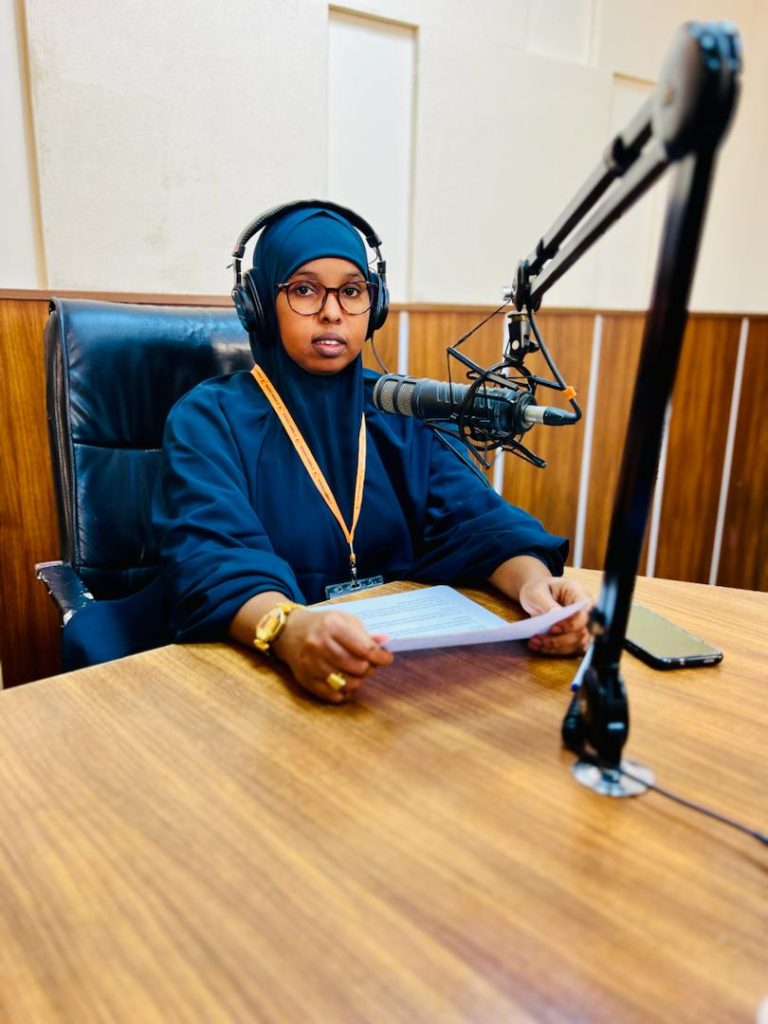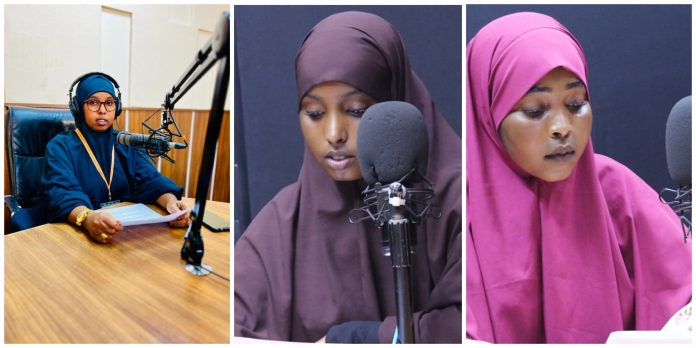MOGADISHU – On World Radio Day, the Somali Journalists Syndicate (SJS) acknowledges the remarkable work done by our female network of journalists working in the radio sector in Somalia and keeping the public informed despite the many challenges and threats.
Indeed, the radio as a journalism marks a century of informing, entertaining and educating world society. As research shows, radio is the most popular means for obtaining news in Somalia, with more than four in five (83.9%) of the population reporting they get news via radio at least once per week. And more than eight in 10 adults (83.7%) say they have a working radio in their home.
That is why many of SJS network of journalists work in radio sector. On World Radio Day today, we highlight three women journalists in the radio sector.
Among these remarkable women journalists are 20-year-old Hamdi Hassan Ahmed, and 21-year-old Shukri Caabi Abdi, who work for Radio Risaala. Both were trained under the auspices of an SJS program, generously supported by the Canadian Fund for Local Initiatives (CFLI).

“I like my job because I enjoy giving information to the public and the most important entertaining the community,” says Hamdi Hassan Ahmed.
Apart from their field reporting duties, both of these female reporters also host a weekly radio talk show featuring a call-in segment alongside a slot dedicated to music entertainment.
“Whenever we begin the show, you can witness the telephone line is already full with callers and majority are young men and women who are enjoying the show but want also to express themselves,” says Shukri.
In the program, the callers speak about their community and but also a key issue of the day is usually discussed- most of the time social issues like the rise of divorce, domestic violence, sports and inflation.
However, 27-year-old Radio Himilo journalist, Hanaa Mohamed, a beneficiary of SJS-CFLI program, views radio as a vital conduit of information for the diverse communities across Somalia, serving as a cornerstone of traditional news consumption.
“In my view, my role as a radio journalist is of utmost importance in serving my people. Radio remains a crucial lifeline for accessing information, catering not only to urban dwellers but also to those in rural regions,” she emphasizes.
Since 2012, Hanaa has focused on reporting on social issues, particularly those concerning women, through her work in journalism. Additionally, she utilizes social media platforms to expand her reach, targeting educated youth primarily in urban settings.

According to research conducted in 2013, Somalis exhibit the greatest interest in media coverage related to religion, followed by health, arts and culture, and education. As a result, Hanaa and her fellow journalists strategically allocate a significant portion of their program to these topics, effectively addressing various social affairs.
“Today holds significance for all of us, particularly for our female journalists in radio. Despite the increasing sway of social media in Somalia, radio remains vibrant, reflecting the oral nature of Somali society and maintaining its pivotal role,” remarks Anfa Aden Abdi, the Secretary of Gender at SJS. “Radio stations not only keep the public well-informed but also provide employment opportunities for many journalists, including numerous women who are balancing their roles as mothers. We express our gratitude to them for their dedication.”
“SJS sends its compliment and congratulations to all radio journalists, and particularly women journalists for their dedication in keeping our society informed, educated and entertained,” Anfa adds.


